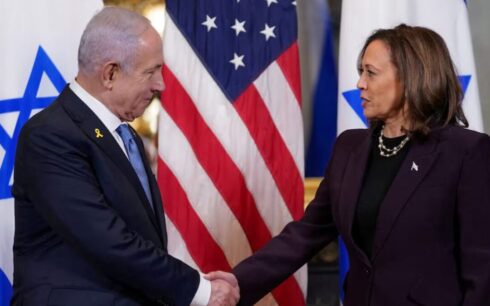The United States has updated a draft United Nations Security Council resolution to advocate for “an immediate ceasefire of roughly six weeks in Gaza, along with the release of all hostages,” as seen in the latest text reviewed by Reuters.
This third revision, initially introduced by the US two weeks ago, aligns with Vice President Kamala Harris’s straightforward statements, shifting from the earlier stance supporting “a temporary ceasefire” in the conflict between Israel and Hamas.
The US insists that any Security Council endorsement of a ceasefire must also demand the release of hostages held by Hamas in Gaza. Following an attack by Hamas on October 7, which resulted in 1,200 deaths and the capture of 253 hostages as reported by Israel, the US has been reluctant to use the term “ceasefire” and has vetoed three draft resolutions calling for an immediate halt to hostilities during the five-month war. The US argues these measures could hinder ongoing negotiations led by the US, Egypt, and Qatar aimed at achieving a ceasefire and securing the release of hostages.
President Joe Biden emphasized on Tuesday that the potential for a ceasefire depends on Hamas’s willingness to agree to terms, as talks enter their third day without evident progress. While the US typically supports Israel at the UN, it has allowed the council to pass resolutions to enhance aid to Gaza and propose extended fighting pauses on two occasions.
In response to the October 7 Hamas attack, Israel initiated a military operation against Hamas in Gaza. According to health officials, this assault has resulted in over 30,000 Palestinian deaths, with concerns that thousands more casualties remain undiscovered in the debris.
Amid escalating tensions, the US is urging Israel, its ally, to improve humanitarian aid access to Gaza. The UN has highlighted the dire situation in the enclave, warning that 2.3 million residents face imminent famine risk.
The US plans to negotiate its draft resolution further, aiming for a thoughtful approach rather than rushing the voting process. A resolution requires a minimum of nine affirmative votes and no vetoes from any of the permanent members of the Security Council: the US, France, Britain, Russia, or China.





